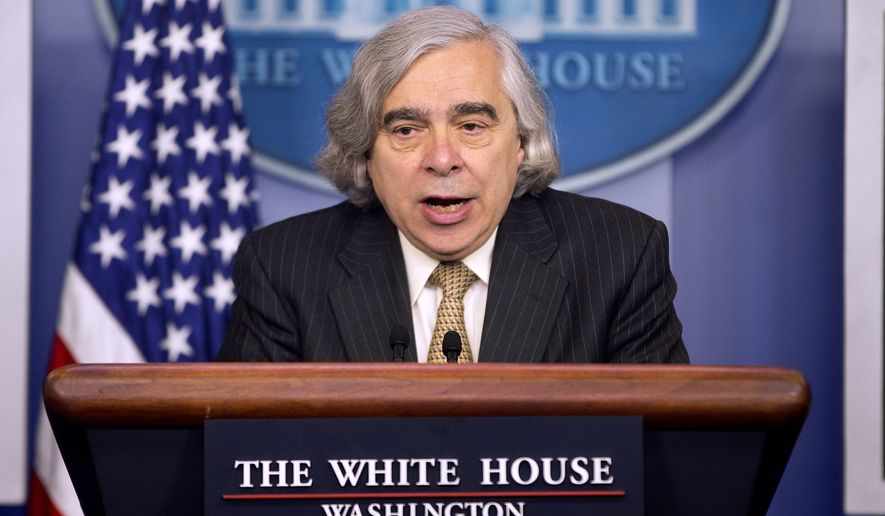U.S. power and energy infrastructure is outdated and perhaps more vulnerable than ever to the effects of climate change, terrorist attacks and other threats, and will require billions of dollars in repairs and modernization to keep pace in the 21st century, according to a landmark Obama administration report.
The first installment of the Energy Department’s Quadrennial Energy Review, commissioned by President Obama 15 months ago, paints a grim picture for the U.S. electrical grid, power transmission lines, natural gas and oil pipelines, ports, railways and other critical pieces of national infrastructure. Administration officials argue that fixing or replacing key pieces of that infrastructure not only will benefit U.S. national security and fend off the consequences of global warming but also will serve as a job creator.
“It is a complicated system. The point is the delivery and transmission of energy touches every single corner of the country above and below the ground … as we look forward, we need to be smart about how we invest to shore up the vulnerabilities,” Vice President Joseph R. Biden said Tuesday during a speech a Peco Energy Co., a local utility in Philadelphia. “It’s also about strengthening our economic competitiveness around the world and competing for the business around the world.”
Leading Republicans — who vehemently oppose Mr. Obama’s broader energy and climate-change policies — signaled they’re open to working with the White House on the mammoth task of rebuilding decaying infrastructure. Fixing pipelines, railways, the aging electrical grid and other pieces of infrastructure has been an area where Republicans and Democrats traditionally have found common ground, but debates remain about how best to pay for it.
“While we share our differences with this administration regarding energy policy, when it comes to the transmission, storage, and distribution of our resources, we can all agree that targeted changes to our laws and polices are necessary,” Rep. Fred Upton, Michigan Republican chairman of the House Energy and Commerce Committee, and Rep. Ed Whitfield, Kentucky Republican and chair of the subcommittee on energy and power, said in a statement.
“We need a modern and resilient energy infrastructure that will meet tomorrow’s energy challenges. We are reviewing the administration’s full recommendations, but we have already found areas of common ground where we will work together,” they added.
SEE ALSO: House, Senate closer to smoothing budget differences
Specifically, the report found that threats to the electrical grid, including terrorist attacks or unprecedented storms caused by climate change, are growing in number while the reliability and safety of the grid has remained stagnant or, in some cases, gone backward.
Much the same for oil-and-gas infrastructure, the study shows.
“These infrastructures have not kept pace with changes in the volume and geography of oil and gas production. The nation’s ports, waterways and rail systems are congested, with the growing demand for handling energy commodities increasingly in competition with transport needs for food and other non-energy freight,” the report reads in part. “Although improvements are being made, much of the relevant infrastructure — pipelines, rail systems, ports and waterways alike — is long overdue for repairs and modernization.”
As a first step toward making desperately needed repairs, the administration announced the formation of the Partnership for Energy Sector Climate Resilience, which will bring leading energy companies together with the Energy Department to develop plans for protecting infrastructure against extreme weather and other effects of climate change.
The Agriculture Department also announced it will provide $72 million to support six new rural electric infrastructure projects, including repairs to outdated power transmission lines.
The report also recommends dozens of other infrastructure projects that must be tackled soon and some of which will require appropriations by Congress, including: a $2.5 billion Energy Department initiative to improve natural-gas distribution; a $3.5 billion plan to modernize the U.S. electric grid; at least $ 1.5 billion to improve and extend the life of the crucial Strategic Petroleum Reserve; and many other investments.
SEE ALSO: Obama: U.S. must secure global climate-change deal ‘before it’s too late’
• Ben Wolfgang can be reached at bwolfgang@washingtontimes.com.




Please read our comment policy before commenting.